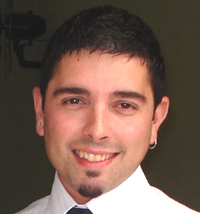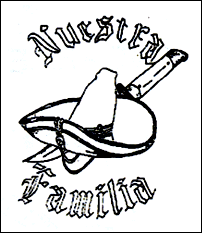Related Research Articles

The Racketeer Influenced and Corrupt Organizations (RICO) Act is a United States federal law that provides for extended criminal penalties and a civil cause of action for acts performed as part of an ongoing criminal organization. The RICO Act focuses specifically on racketeering and allows the leaders of a syndicate to be tried for the crimes they ordered others to do or assisted them in doing, closing a perceived loophole. For example, before RICO, a person who instructed someone else to murder could be exempt from prosecution because they did not personally commit the crime.

A prosecutor is a legal representative of the prosecution in countries with either the common law adversarial system or the civil law inquisitorial system. The prosecution is the legal party responsible for presenting the case in a criminal trial against an individual accused of breaking the law. Typically, the prosecutor represents the government in the case brought against the accused person.

The Mexican Mafia, also known as La eMe, is a highly organized Mexican American criminal organization in the United States. Despite its name, the Mexican Mafia did not originate in Mexico, and is entirely a U.S. criminal prison organization. Law enforcement officials report that the Mexican Mafia is the deadliest and most powerful gang within the California prison system. Government officials state that there are currently 400–500 official members of the Mexican Mafia with around 1,000 associates who also carry out its illegal activities in the hopes of becoming full members.

Mark T. Abene is an American infosec expert and entrepreneur, originally from New York City. Better known by his pseudonym Phiber Optik, he was once a member of the hacker groups Legion of Doom and Masters of Deception.

Nuestra Familia is a criminal organization of Mexican American (Chicano) prison gangs with origins in Northern California. While members of the Norteños gang are considered to be affiliated with Nuestra Familia, being a member of Nuestra Familia itself does not signify association as a Norteño. Some law enforcement agents speculate that the Nuestra Familia gang, which operates in and out of prisons, influences much of the criminal activity of thousands of Norteño gang members in California. The gang's main sources of income are distributing cocaine, heroin, marijuana, and methamphetamine within prison systems as well as in the community and extorting drug distributors on the streets.
The United States Federal Sentencing Guidelines are rules that set out a uniform policy for sentencing individuals and organizations convicted of felonies and serious misdemeanors in the United States federal courts system. The Guidelines do not apply to less serious misdemeanors or infractions.
Mandatory sentencing requires that offenders serve a predefined term for certain crimes, commonly serious and violent offenses. Judges are bound by law; these sentences are produced through the legislature, not the judicial system. They are instituted to expedite the sentencing process and limit the possibility of irregularity of outcomes due to judicial discretion. Mandatory sentences are typically given to people who are convicted of certain serious and/or violent crimes, and require a prison sentence. Mandatory sentencing laws vary across nations; they are more prevalent in common law jurisdictions because civil law jurisdictions usually prescribe minimum and maximum sentences for every type of crime in explicit laws.
Hobart Huson, also known as Strike, is the founder and site designer of online forum The Hive and author of several popular books such as Total Synthesis I and II, and Sources, in which he details methods of synthesizing a variety of amphetamines, obtaining equipment and chemicals, and avoiding prosecution for said activity. From his books, it is clear that MDMA or Ecstasy was the drug he found to be most compelling : in his book Total Synthesis II, he describes it as "the most benign drug [I have] ever encountered."

Ronell Earl Wilson was convicted of the 2003 capital murder of two undercover New York City police officers in Staten Island, New York. His trial before Judge Nicholas Garaufis of the United States District Court for the Eastern District of New York began on November 27, 2006. On December 20, 2006, he was found guilty of the capital murders as well as other related charges. On January 30, 2007, Wilson was sentenced to death, the first such sentence by a federal jury in New York since the federal death penalty was reinstated in 1988.
Jonathan Lee Riches is a former federal prisoner known for the many lawsuits he has filed in various United States district courts. Riches was incarcerated at Federal Medical Center, Lexington, Kentucky, for wire fraud under the terms of a plea bargain. His release date was April 30, 2012. He was arrested for violating his federal probation in December 2012, when he left the Eastern District of the state of Pennsylvania without permission. He allegedly drove to Connecticut and impersonated the uncle of Adam Lanza, the shooter in the Sandy Hook Elementary School incident.

Capital punishment is a legal penalty in the U.S. state of Alabama.
Capital punishment is a legal penalty in the U.S. state of Idaho.
The United States Penitentiary, Canaan is a high-security United States federal prison for male inmates, with a satellite prison camp for minimum-security male inmates. It is operated by the Federal Bureau of Prisons, a division of the United States Department of Justice.

Albert Gonzalez is an American computer hacker and computer criminal who is accused of masterminding the combined credit card theft and subsequent reselling of more than 170 million card and ATM numbers from 2005 to 2007: the biggest such fraud in history. Gonzalez and his accomplices used SQL injection to deploy backdoors on several corporate systems in order to launch packet sniffing attacks which allowed him to steal computer data from internal corporate networks. During his spree, he was said to have thrown himself a $75,000 birthday party and complained about having to count $340,000 by hand after his currency-counting machine broke. Gonzalez stayed at lavish hotels but his formal homes were modest.
Marsy's Law, the California Victims' Bill of Rights Act of 2008, enacted by voters as Proposition 9 through the initiative process in the November 2008 general election, is an amendment to the state's constitution and certain penal code sections. The act protects and expands the legal rights of victims of crime to include 17 rights in the judicial process, including the right to legal standing, protection from the defendant, notification of all court proceedings, and restitution, as well as granting parole boards far greater powers to deny inmates parole. Passage of this law in California has led to the passage of similar laws in Florida, Georgia, Illinois, Kentucky, Nevada, North Carolina, Oklahoma, Ohio and Wisconsin, and efforts to pass similar laws in Hawaii, Iowa, Montana, Idaho, South Dakota, and Pennsylvania. In November 2017, Marsy's Law was found to be unconstitutional and void in its entirety by the Supreme Court of Montana for violating that state's procedure for amending the Montana Constitution.

The United States Penitentiary, Tucson is a high-security United States federal prison for male inmates in Arizona. It is part of the Tucson Federal Correctional Complex and is operated by the Federal Bureau of Prisons, a division of the United States Department of Justice. The facility also has a satellite prison camp for minimum-security male offenders.

The Metropolitan Detention Center, Guaynabo is a United States federal prison facility in Guaynabo, Puerto Rico which holds male and female inmates of all security levels who are awaiting trial or sentencing. It is operated by the Federal Bureau of Prisons, a division of the United States Department of Justice.

The Farmer's Market, formerly Adamflowers, was an online black market for illegal drugs. It was founded by Marc Peter Willems in or before 2006, and moved operations to the dark web in 2010 using the Tor anonymity network. It was closed and several operators and users arrested in April 2012 as a result of Operation Adam Bomb, a two-year investigation led by the U.S. Drug Enforcement Administration (DEA).
Criminal justice reform addresses structural issues in criminal justice systems such as racial profiling, police brutality, overcriminalization, mass incarceration, and recidivism. Criminal justice reform can take place at any point where the criminal justice system intervenes in citizens’ lives, including lawmaking, policing, and sentencing.
Operation Torpedo was a 2011 operation in which the Federal Bureau of Investigation (FBI) compromised three different hidden services hosting child pornography, which would then target anyone who happened to access them using a network investigative technique (NIT).
References
- ↑ Fassler, Larry (2006-10-30). Busted By The Feds: A Manual For Defendants Facing Federal Prosecution. Southwest Legal Services. ISBN 978-0-9644908-3-3.
- ↑ http://www.bustedbythefeds.com/author/author.html
- ↑ "Archived copy". Archived from the original on 2010-08-30. Retrieved 2010-06-02.CS1 maint: archived copy as title (link)
- ↑ "Author of book on beating federal prosecution charged in drug ring" The Plain Dealer . Cleveland.com. February 20, 2008. Retrieved June 7, 2010.
- ↑ "Inmate Locator".
- ↑ "Archived copy". Archived from the original on 2010-11-17. Retrieved 2010-06-27.CS1 maint: archived copy as title (link)
- ↑ CA Sherman (2005), Earning positive evaluations from IT students: effective techniques, Proceedings of the 6th conference on Information, pp. 255–259, doi:10.1145/1095714.1095774, ISBN 9781595932525, S2CID 525385